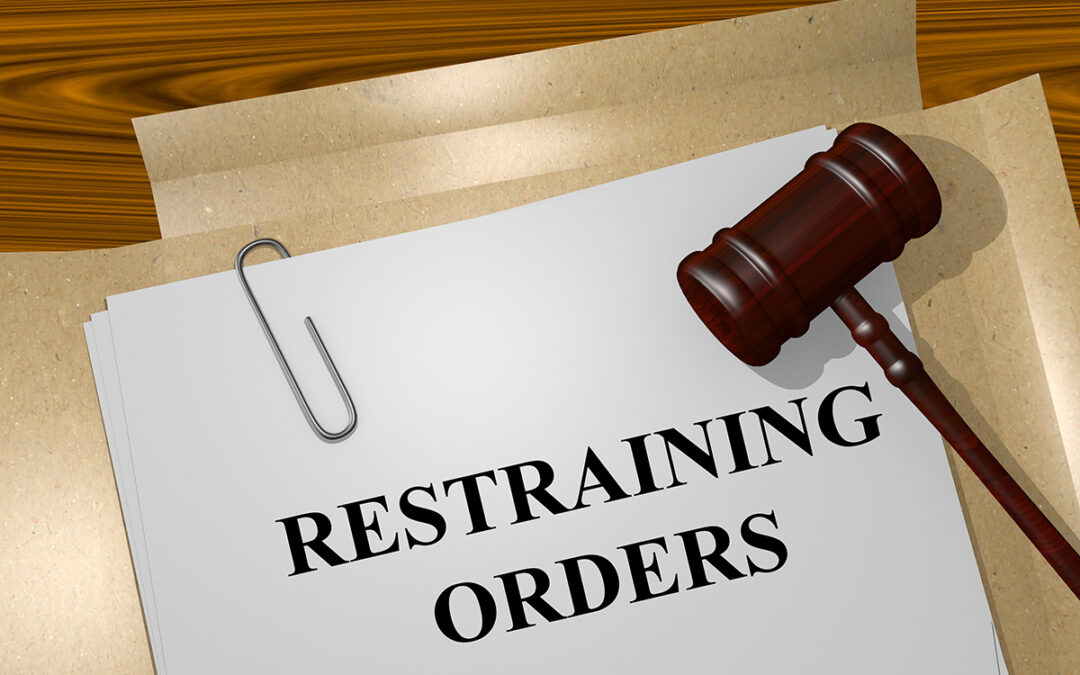At The Law Office of André J. Ausseresses, APC, we’ve helped many people who were accused of domestic violence, and that often includes being issued a restraining order. If you were recently issued a restraining order, don’t panic. The best way to proceed is to do so armed with as much knowledge about the situation and the legal side of these orders as possible.
If you have questions about what any aspect of your restraining order means, how best to live your life while it’s in effect, or if you want a lawyer to help you contest it, we’re here to assist. You can also use the information on this page to help you better understand what has happened, what is happening, and what may happen in the future.
Make Sure You Received an Actual Restraining Order
In California, people who have had restraining orders issued against them will receive at least one of the following forms:
- Notice of Court Hearing (form DV-109)
- Request for Domestic Violence Restraining Order (form DV-100)
- Temporary Restraining Order (form DV-110)
If you didn’t receive a form, or if the form you received doesn’t have any of those titles or codes at its top, you may not have had an actual restraining order issued against you. If you’re unsure, you can find out at your local courthouse. Restraining orders are public record in California, which means you can access any that have been issued against you.
Check Your Court Hearing Date
If you received a Notice of Court Hearing (form DV-109), it will tell you when your court hearing date is scheduled to occur and who filed the restraining order against you. The hearing date gives you an opportunity to contest the restraining order.
If you wish to contest it, make note of the date, time, and location and be ready to appear in person that day. While it’s possible to contest a restraining order on your own, it’s not easy to get a favorable outcome. Having an experienced family law attorney on your side can significantly improve your chances, especially in court.
Be Prepared for Your Child Custody Arrangement to Change
If you have a child with the person who filed a restraining order against you, note that your ability to see him or her may change as a result of the restraining order.
You will likely have received form DV-105 or form DV-140, which will have more information about custody orders and parenting time available to you. Attending your court hearing date gives you an opportunity to contest these changes and orders.
Note Any Temporary Orders Made Against You
Items 5 through 18 on Form DV-110 are temporary orders that are issued by the judge presiding over the restraining order. They include things such as:
- Selling, storing, or turning in firearms within 24 hours and proving you did so via receipts within 48 hours
- Staying away from named animals and pets
- Not making any changes to health and other insurance policies
- Not looking for protected people, including the person who filed the restraining order against you
- And more
Violating any of these temporary orders can result in a fine or being arrested, so it’s important to fully read form DV-110 to see which temporary orders have been ordered.
Give Information About Your Finances
Restraining orders often involve child support, spousal support, lawyer’s fees, debt payments, and more. These financial aspects of the restraining order will be noted on an Income and Expense Declaration form. (form FL-150).
When completing the form, be honest about your income and expenses, and follow all other directions, including attaching proof of income from the past two months.
Call an Experienced California Family Law Attorney
Promptly and properly responding to everything in a restraining order can be overwhelming, stressful, and even frightening. Your world has been turned upside down by this order and the multiple forms you may have received, and you may not even know where or how to start responding to what is being demand of you.
This is where having an experienced California family law attorney on your side is so valuable. At The Law Office of André J. Ausseresses, APC, we’ve seen all sides of restraining orders, and we now how important it is to respond by the book to avoid further headaches and unnecessary legal troubles.
Call us or fill out the form on our website to get a free initial consultation. Take heart and know that you’re not alone during this confusing and stressful time, and our legal team is here to help you proceed through the coming days and weeks as confidently as possible.
Free Initial Consultation
Helping you through family law matters such as divorce, domestic violence, legal guardianship, child support, child custody, visitation rights, alimony and more.
Serving all of Orange County, California.
Call: (949) 244-8871

